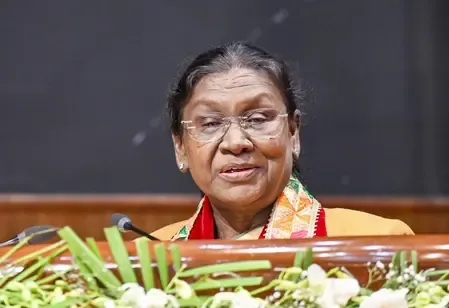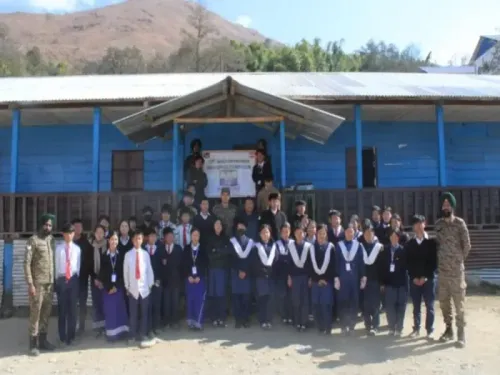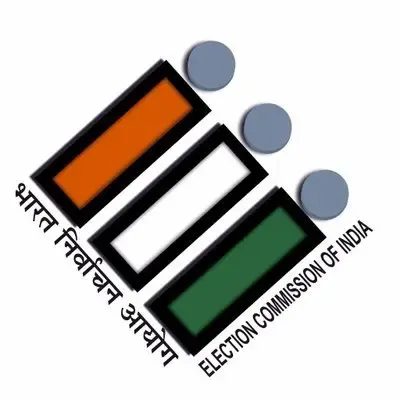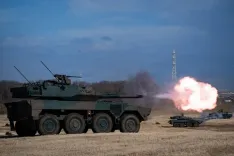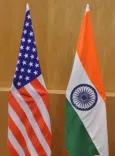How Do India's Relations with the US Go Beyond Trade?
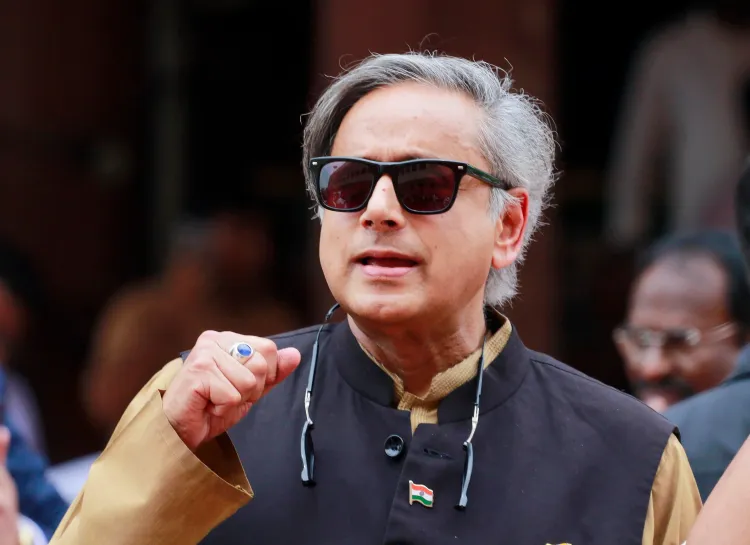
Synopsis
Key Takeaways
- India's ties with the US are vital and multifaceted.
- Trade is just one aspect of the growing partnership.
- Strong responses to external threats reflect India's commitment to national security.
- Ongoing US-India discussions include various strategic issues.
- Pakistan's nuclear threats are dismissed by Indian officials.
New Delhi, Aug 11 (NationPress) Congress MP and Chairman of the Parliamentary Standing Committee on External Affairs, Shashi Tharoor, stated on Monday that Foreign Secretary Vikram Misri emphasized that India's partnership with the United States is of significant importance and spans beyond mere trade to encompass various areas of collaboration where New Delhi-Washington relations thrive.
Tharoor made these remarks following a three-hour committee session where 22 members engaged with the Foreign and Commerce Secretary regarding current matters tied to India's Foreign Policy, especially the ongoing US-India trade discussions and tariffs.
“The 22 members posed over 50 questions to the Foreign Secretary and the Commerce Secretary. Our Foreign Secretary reiterated the significance of ties with America, noting that trade is just one element. Many other issues are concurrently being deliberated between the two nations. This was elaborated upon, and all clarifications requested by the members were provided,” Tharoor informed reporters waiting outside the meeting.
Tharoor also criticized Pakistan's Chief of Army Staff, General Syed Asim Munir, for making contentious remarks about India during his recent visit to the United States.
“Concerns were raised regarding General Munir's statements on American soil, highlighting the misuse of a friendly nation’s territory to voice such opinions about us. Furthermore, the MEA has dismissed Pakistan's nuclear threats, asserting that we will not allow such tactics to sway our perspective. Nuclear intimidation will not succeed with India, and this principle is unanimously supported by all parties,” said Tharoor.
During his visit to the US, Munir asserted that Pakistan will staunchly defend its rights over the Indus River, even threatening to demolish any dams India constructs on it.
“We will await India to build a dam, and when they do, we will dismantle it... The Indus River does not belong to India alone. We possess ample resources to counteract India’s attempts to control the river,” Munir reportedly stated at an event in Tampa, Florida.
Earlier, India responded firmly to Munir's comments, reiterating its refusal to succumb to nuclear threats.
“We have noted the remarks made by the Pakistani Chief of Army Staff during his visit to the United States. Nuclear intimidation is a common tactic used by Pakistan. The global community can form its own conclusions regarding the recklessness of such statements, which further cast doubt on the reliability of nuclear command and control in a country where the military collaborates with terrorist organizations,” stated Randhir Jaiswal, spokesperson for the MEA.
Reports indicate that Munir traveled to two US cities over the weekend before heading to Belgium, after completing his second notable trip to the US within a span of two months.
“It is unfortunate that such remarks were made from the territory of a friendly nation. India stands firm that it will not yield to nuclear intimidation. We will take all necessary measures to ensure our national security,” the MEA statement concluded.


